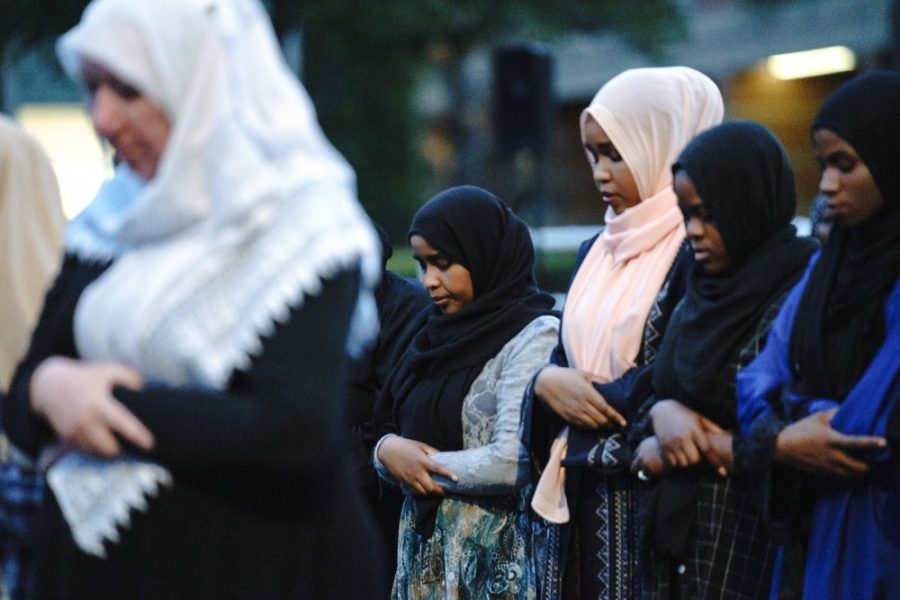This afternoon, at the re-sentencing hearing of Claremont School of Theology graduate student (and UA alumnus) Walt Staton, the government of the United States will face a critical choice: to criminalize humanitarian aid work, or to condone and support it.
A year ago today, under collaboration with the Border Patrol, the U.S. Fish and Wildlife Service cited Staton for “”littering”” after he had left jugs full of fresh, clean drinking water on the Buenos Aires National Wildlife Refuge intended to assist endangered migrants crossing some of the most treacherous and isolated parts of the Sonoran Desert, where the bodies of 208 people have been recovered over the past year.
After being led through a criminal trial this past June, Staton, then an aid worker for local humanitarian organization No More Deaths, was convicted of “”knowingly littering.”” Immediately after the sentencing in August (which commanded a fine, one-year banishment from the wildlife refuge and 300 state service hours) his defense stated on KVOA news that they will appeal the decision because they don’t believe Walt’s actions to be criminal, arguing that both the conviction and punishment are unjust.
Today, in a re-sentencing of his conviction, Walt again faces up to one year in prison and a $100,000 fine.
Among numerous international legal reports confirming the injustice of the decision, the 2008 Annual Report of the United Nations Special Rapporteur on the Human Rights of Migrants concluded that “”the United States lacks a clear, consistent, long-term strategy to improve respect for the human rights of migrants”” and “”has failed to adhere to its international obligations to make the human rights of the 37.5 million migrants living in the country a national priority.””
The Constitution of the United States guarantees these obligations signed by the United States to be the “”supreme law of the land.””
Doing his part, Walt acted to fulfill the undeniable gap between the binding promise of international obligations on the part of the United States to protect the life and liberty of migrants and the dreadful reality of mass migrant deaths in the American borderlands.
But a hat must be tipped to the U.S. government for their honesty, at the very least. After all, we know their policy objectives and intentions, stated very clearly in their own words. A May 13, 2008 Congressional Research Service report reviews, very comprehensively, the history of governmental policy in the region since the early 1990s. The report, entitled “”Border Security: Barriers Along the U.S. International Border,”” explicitly outlines the government’s overall “”deterrence strategy”” of “”rerouting”” anticipated human migration “”away from urban areas toward geographically isolated areas”” in order to establish a “”tactical advantage”” over these human beings.
In other words, rather than adhere to international law, U.S. border policy literally forces mass amounts of human beings to brave treacherously deadly, “”geographically isolated areas,”” which, “”by design and default,”” lead directly to “”at least one death every day of a migrant crossing the border,”” quoting an Oct. 21 report by the American Civil Liberties Union entitled “”Humanitarian Crisis: Migrant Deaths at the U.S.-Mexico Border.””
One of these pernicious and “”geographically isolated areas”” for migrants is the Buenos Aires National Wildlife Refuge, where Walt’s constituent group, No More Deaths, and others, continue to focus their efforts of humanitarian aid.
In keeping with his promise to contest the decision, in a letter dated Nov. 2 and addressed to the federal magistrate who sentenced him, Jennifer Guerin, Walt expressed that he “”invite(s) the court to re-consider its sentence in light of the undeniable humanitarian crisis unfolding along the U.S.-Mexico border.””
But those who perhaps would like to see Mr. Staton shuttered away behind prison bars persist. In a court memo dated Nov. 23 from U.S. District Attorney Dennis K. Burke and Assistant Attorney Lawrence C. Lee, the prosecution argues that Walt is simply “”defiant of the court order.””
Mr. Staton has submitted himself to the court’s procedure: he has requested a re-sentencing, having agreed to travel from out of state (leaving an intensive school schedule) to appear at court in person. By all accounts, he has followed the legal process earnestly and respectfully.
Do his actions, then, honestly appear as a “”refusal”” to cooperate? It is the government from the beginning that has refused to cooperate with the rule of law and the basic principles of universal life and liberty, human rights, and justice.
Today is useful to focus undivided attention on the government’s crucial choice in this matter. As Walt ends his eloquent letter to Judge Guerin, stating: “”The court’s compassion and understanding would go a long way in helping end this human rights crisis.””
If the government of the United States shackles Walt Staton into custody today, it will send a clear and resounding message that the spirit of human rights, of decency, and of humanitarianism is so dangerous, so menacing and “”defiant”” to government objectives that the enduring spirit itself — embodied in Walt’s actions — has to be violently encaged within hundreds of pounds of seemingly unbreakable metal and concrete.
But, as Walt (and many a decent person) continually contends: “”I will continue working with humanitarian organizations until (a fundamental) shift in policy occurs and the death and suffering ends.””
— Gabriel Matthew Schivone is a junior majoring in art, literature and media studies.
He can be reached at: letters@wildcat.arizona.edu.








